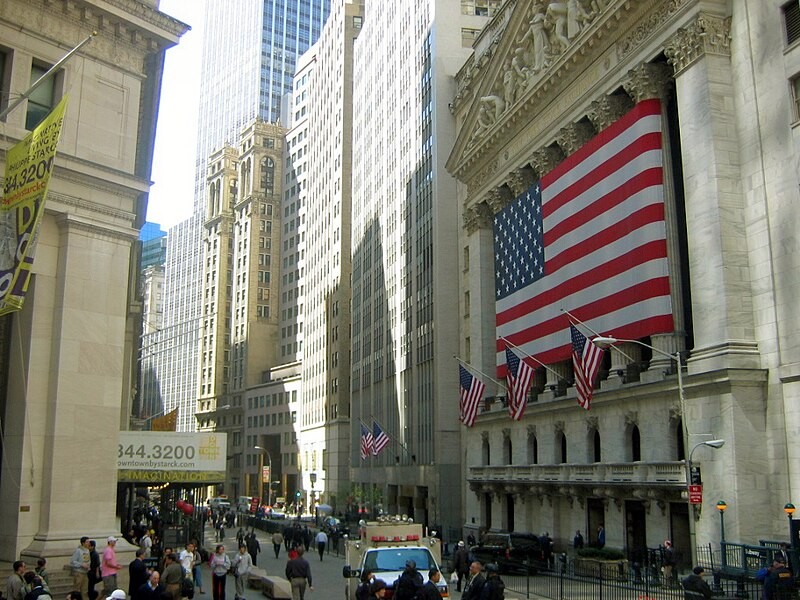
Wall Street plunges as Trump's new tariffs on Canada stoke economic slowdown fears
New York: Wall Street's major indexes slid in volatile trading on Tuesday after US President Donald Trump announced fresh tariffs on Canadian imports, deepening concerns that his trade policies could slow economic growth, Reuters reported.
Trump raised tariffs on all steel and aluminum products imported from Canada to 50%, doubling his previous levy.
This move came in retaliation to Ontario imposing a 25% tariff on electricity exported to the US.
The escalation in trade tensions has unsettled global markets, with analysts cautioning that such measures could drive up inflation and hinder economic expansion.
Trump's ongoing tariff disputes with key trading partners like Canada, Mexico, and China have amplified market uncertainty.
The S&P 500 posted its largest single-day loss since December 18 on Monday, wiping out $4 trillion from its recent peak.
The Nasdaq, heavily dominated by tech stocks, confirmed a 10% correction last week.
“Every time we see a slight market rebound, Trump’s tariff announcements pull it back down … it’s getting ugly and will hurt,” said Dennis Dick, a trader at Triple D Trading was quoted as saying by Reuters. “Global investors are now wary of investing in North America due to growing political uncertainty.”
As of 10:23 a.m. ET, the Dow Jones Industrial Average was down 427.33 points, or 1.02%, at 41,484.38. The S&P 500 declined 34.54 points, or 0.62%, to 5,580.02, while the Nasdaq Composite slipped 33.70 points, or 0.19%, to 17,434.62, the report said.
All 11 major sectors of the S&P 500 were in negative territory, with economically sensitive stocks like industrials and financials losing around 1%.
Adding to market woes, retailer Kohl’s projected a steeper-than-anticipated drop in annual comparable sales, sending its shares tumbling 19.9%, reflecting weakening consumer demand.
US stocks mixed amid weak corporate forecasts, tariff concerns
Dick's Sporting Goods fell 5.9% after issuing a downbeat annual forecast, while Delta Air Lines dropped 7% after slashing its Q1 profit estimate by half.
American Airlines declined 4.8% on a larger-than-expected Q1 loss, pulling the Dow transportation index down 2.5%.
TradeStation's David Russell attributed market hesitation to tariff uncertainties.
Meanwhile, Nvidia gained 3%, Amazon.com rose 1.8%, and Tesla rebounded 4.6% after a steep fall in the previous session.
Oracle shed 3.7% after missing revenue estimates, and Citi downgraded its US stocks outlook to "neutral."
The S&P 500 logged four new 52-week highs and 14 lows, while the Nasdaq Composite posted 15 new highs and 267 lows. Interest rate futures suggest the Federal Reserve will keep rates unchanged next week, though bets on rate cuts later this year are rising amid slowing growth concerns.
Support Our Journalism
We cannot do without you.. your contribution supports unbiased journalism
IBNS is not driven by any ism- not wokeism, not racism, not skewed secularism, not hyper right-wing or left liberal ideals, nor by any hardline religious beliefs or hyper nationalism. We want to serve you good old objective news, as they are. We do not judge or preach. We let people decide for themselves. We only try to present factual and well-sourced news.







